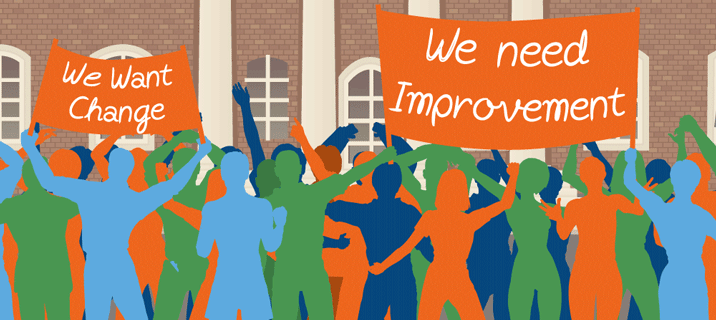I have heard many of my older acquaintances such as grandparents, uncles, aunties, and my own parents say that adolescence is nothing but a malady one must push through during the earlier years of life. “Adolescence is a term defined as ‘pain brought about as a result of lacking,’ and the younger generation is characterized as such because they lack a sense of identity and moral uprightness,” according to several acquaintances. So, to the mind of my older fellows, adolescence is a painful state of being that humanity must go through to recognize some form of personal growth in the latter years of life.
I have heard many of my Latino acquaintances say that I, as a Latino in the United States, must strive to be something more than what the typical Latino is cast to be. Specifically, and devastatingly stereotypically, I am told to stray away from holding job positions such as janitor, construction worker, roof installer—and I am expected, not only because I’m Latino, but also because I’m male, to stay away from housekeeping. So, my Latino fellows assign onto me the task of rebutting the racist and stereotypical view of Latinos in the U.S. by somehow ceasing to participate in those activities that characterize our hard-working Latino culture.
I am sure that I do not stand alone in my experience with the older, mostly immigrant, Latino community. Thousands of young Latino girls and boys, in places like Los Angeles, CA, and Houston, TX, and Union City, NJ, are bombarded daily with negative views on youth and Latinidad. As a teen, I was constantly told by my parents to strive to be better than the Latino roofers, as if the job both defined and denigrated the Latino worker. These stereotypical views about Latinos are sometimes promoted by our own Latino family members. This can be confusing for Latino youth in the U.S., who consistently wonder how to properly perform their role within society.
According to an article published by the Pew Hispanic Center, “nearly six-in-ten Hispanics are Millennials or younger.” This makes the Latino community in the U.S. the largest population of youth aged 18 years or younger. To be Latino and young in the U.S. is to be part of the largest ethnic group in the country. It means that Latino youth in the U.S. hold a numerically predominant position among minorities, which can in turn give Latino youth the loudest voice in the country if they come together and valiantly speak out.
Regardless of the specific role, the fact is that Latino youth in the U.S. play a leading role. Our job as Latino parents, grandparents, uncles, aunties, and other older Latino generations is to provide our Latino youth with all of the resources needed for success. Let us avoid talking down to our youth simply because of their age, and let us cease to impose on them our stereotypical and machista mentality which tells them that they are not doing enough if they lead lives like our Latino ancestors led. Let’s educate our youth, read to our children, talk with and listen to our teenagers. Let’s support their intellectual and emotional growth; for the Latino youth are powerful people.

